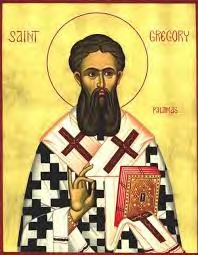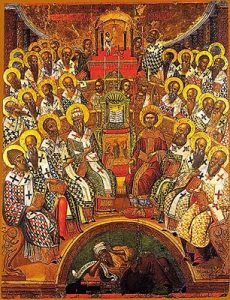 Gregory of Nazianzus, a 4th-century Archbishop of Constantinople and an eminent theologian, is widely considered the most accomplished rhetorical stylist of the patristic age. As a classically trained orator and philosopher, he infused Hellenism into the early church, firmly establishing a paradigm for all subsequent Byzantine theologians and church officials.
Gregory of Nazianzus, a 4th-century Archbishop of Constantinople and an eminent theologian, is widely considered the most accomplished rhetorical stylist of the patristic age. As a classically trained orator and philosopher, he infused Hellenism into the early church, firmly establishing a paradigm for all subsequent Byzantine theologians and church officials.
Gregory made a significant impact on the shape of Trinitarian theology among both Greek and Latin-speaking theologians. He is truly remembered as the “Trinitarian Theologian”. Much of his theological work continues to influence modern theologians, especially in regard to the relationship among the three Persons of the Trinity. Along with his brothers Basil the Great and Gregory of Nyssa, he is known as one of the Cappadocian Fathers. From the very outset of his orations, Gregory warns his audience that they and he are attempting a high and holy task. Theology, while employing the mind, also involves the heart. A pure heart, one grounded in the worship of the Church and a life of prayer, will produce clear and fruitful theological reflection. A murky heart and a dark mind, on the other hand, will produce a sick, thorny theology; it will offer no nourishment, only harm.
Gregory counsels that, because of this intimate connection between mind and heart, those who choose to write on the Father, Son and Holy Spirit “ought to be, as far as may be, pure, in order that light may be apprehended by light.” Theologians who would unfold Scripture can do so safely and sanely only if they themselves have been “molded” and shaped by it. Only then can they “enter upon theological questions, setting at the head thereof the Father, the Son, and the Holy Spirit … one in diversity, diverse in unity, wherein is a marvel.”
He also asserts that not only is a pure heart a prerequisite necessary for thinking well about God, he also warns us that we must remember that there are definite limits to theological perception and true understanding. Alluding to Moses’ experience on Mount Sinai, Gregory describes himself as drawing “aside the curtain of the cloud,” only to withdraw.
I shall be sharing more from
St. Gregory of Nazianzus.





